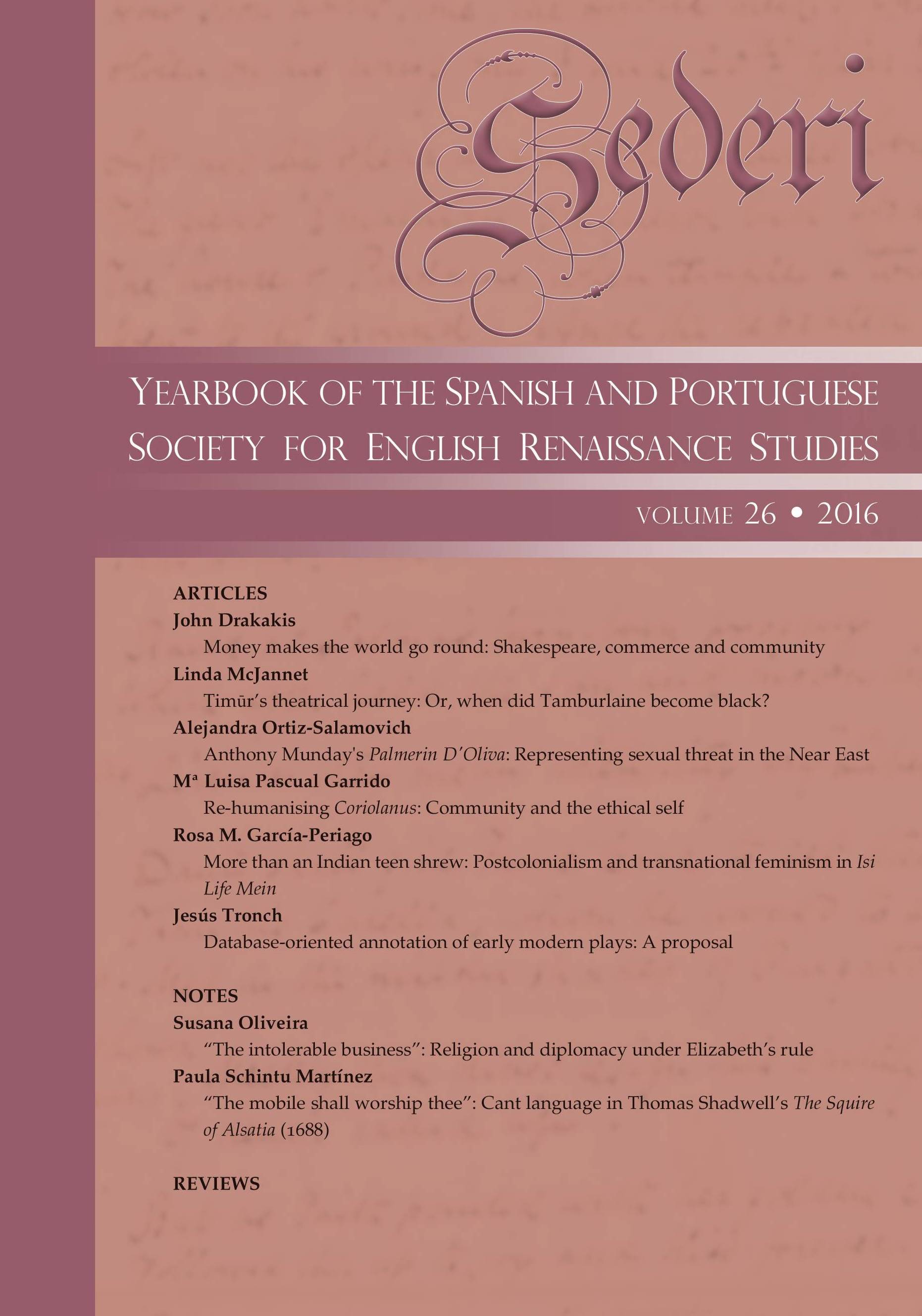Money makes the world go round: Shakespeare, commerce and community
Abstract
In early modern England money was of central importance to areas of social life that are in the modern world separate from the study of economics. The demand for liquid capital and the practical problems associated with the devising of a monetary system that was reliable exercised the minds of philosophers, social commentators, and dramatists. The template for discussion was laid down by Aristotle, who perceived financial activity as part of the larger community and its various modes of social interaction. Copernicus wrote a treatise on money, as had Nicholas of Oresme before him. But in the 16th century dramatists turned their attention to what we would call ‘economics’ and its impact on social life. Writers such as Thomas Lupton, Christopher Marlowe, Ben Jonson, and Shakespeare all dealt with related issues of material greed, usury, hospitality and friendship and the ways in which they transformed, and were transformed by particular kinds of social and economic practice. These concerns fed into the investigation of different kinds of society, particularly turning their attention to their strengths and weaknesses, and in the case of dramatists providing imaginative accounts of the kinds of life that these innovations produced.Downloads
Downloads
Issue
Section
License
The copyright holder of the published contributions is SEDERI.The hardcopy and an open-access version of the journal will be published simultaneously. The issues will be available online in the SEDERI website (http://www.sederi.org/yearbook/) and other repositories that have signed an agreement with SEDERI.
The authors who publish with this journal agree to the following terms:
a) SEDERI retains copyright of the essay.
b) If the author wishes to republish or rewrite the essay for another journal, or include the essay published in SEDERI in their personal repositories, or in any other way, they should contact the editors to obtain permission to do so. This will entail citing SEDERI as the original source and sending the editors a copy of the new version, or the link to the website, in case of online publishing.
The author(s) hereby warrant(s) that:
a) The essay submitted for publication is an original creation and does not infringe any copyright or property right of another journal, author or publisher.
b) The essay submitted for publication has not been previously published, whole or in part, and is not being considered for publication elsewhere.
c) Written permission has been obtained for any material from other sources included in the essay submitted for publication.




